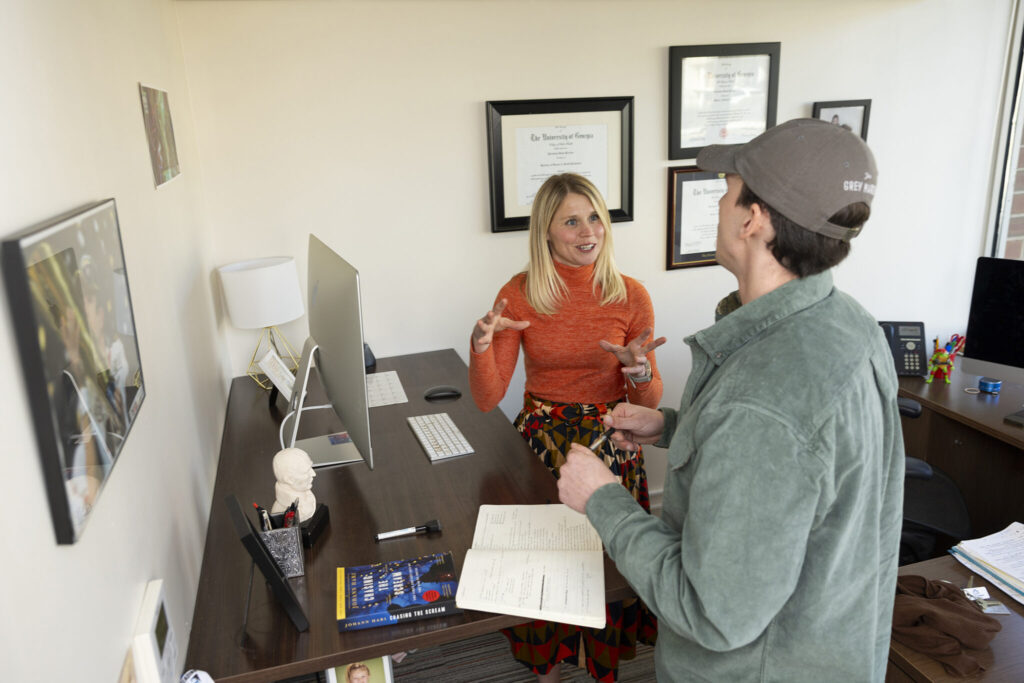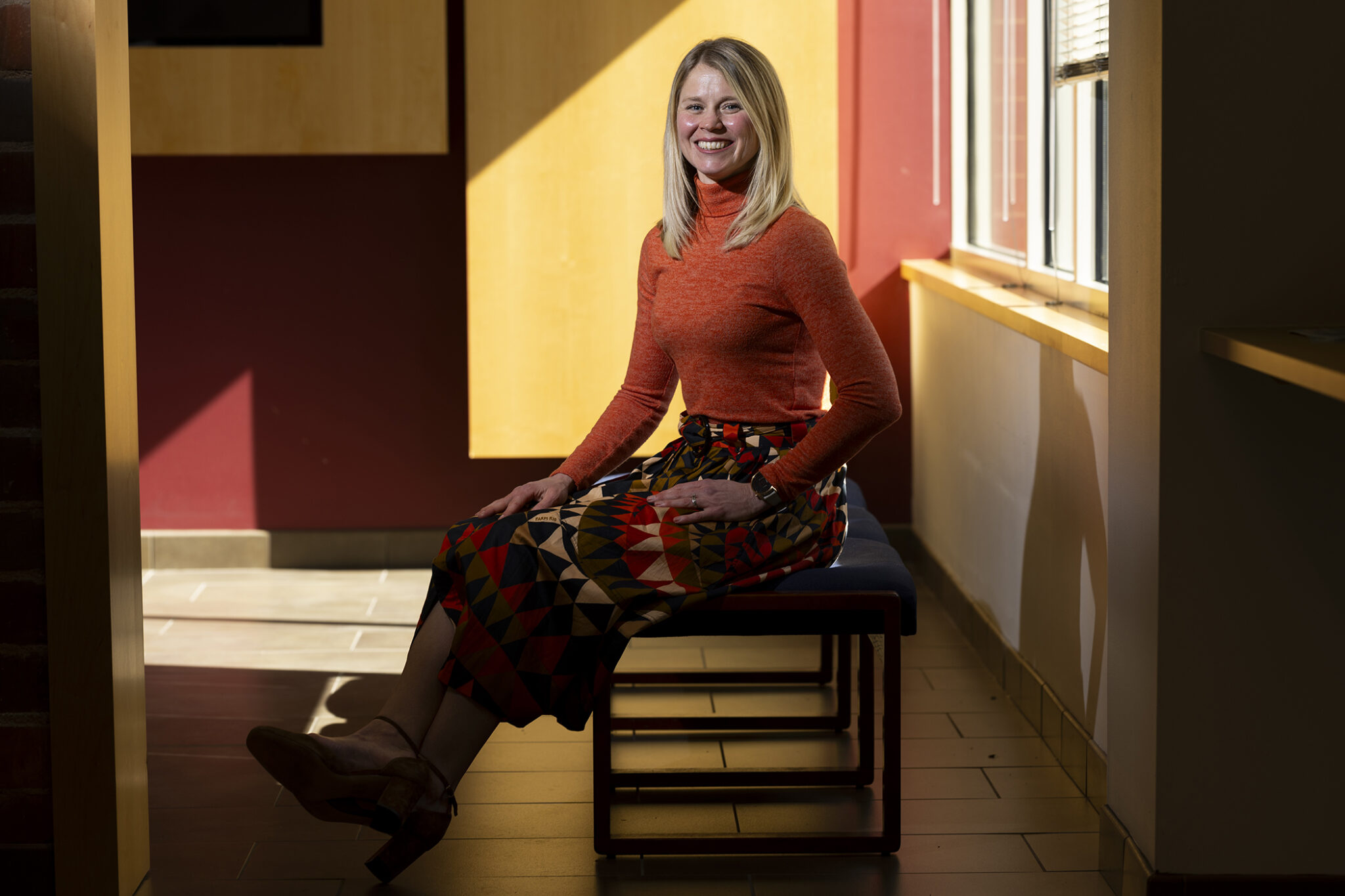If you asked Christina Proctor to describe herself in just a few words, it would be lifelong learner.
And as a clinical assistant professor in the UGA College of Public Health, each day brings something new to learn.
“As an instructor, you can never stop learning. There’s always something new to find out. There are new methods to teach students. There are new groups of students that come in, and I love that challenge of figuring out what’s the best way to get this group of students to connect to this material, to connect to each other,” she said.
Proctor teaches undergraduate research methods and public health elective courses on drug use and abuse and sexuality education. Helping public health students, many of whom will go on to work as health educators, clinicians and community health professions, get comfortable with discussing hard topics is one of Proctor’s top goals as a teacher.

(L-R) Clinical assistant professor Christina Proctor talks with graduate student Noah Hopkins about their research in her office at Wright Hall.
“And then once you get comfortable talking to each other, let’s figure out a way where, if you’re going to be an educator, a practitioner, if you’re going to be a public health worker in the community, the best way to talk about those issues with the populations that you’re working with. And I see such growth in those classes,” she said.
Proctor remembers what it was like to be in their seats. As a first-generation college student from rural Madison County, Georgia, she sometimes felt out of place. It was in her public health classes where she encountered professors who welcomed her unique perspective and experiences as assets in the classroom.
Creating that same inclusive environment in her classes, she says, builds empathy, which is a critical skill for emerging public health professionals.
“When you have these people in a classroom that come together with different backgrounds, different views, different values, and you can see them empathizing with each other is, to me, one of the most rewarding things about teaching.”
Proctor is also “okay with relinquishing my authority to somebody who is speaking that has an important voice that needs to be heard,” she said. “My experience is my experience. Their experience is their experience.”
Proctor takes that same approach to her research and with rural farmers. Over the last two years, she’s been working with farmers to better understand how farmers use alcohol to cope with the immense stress they carry. It’s tricky subject to discuss with a population that’s generally reluctant to talk about mental health at all.
“You have to be willing to go in with a lot of humility. I’m from a rural area, and I know what it’s like to grow up in a rural area, but I don’t know what it’s like to be a rural farmer,” said Proctor. “If you listen and you understand what they’re going through, then they’re more willing to work with you on issues.”
When she’s not on the road meeting with farmers, she’s usually on the road training for her next long-distance race.
“I’ve been running since I was in middle school, and running has always been an outlet for me, a source of joy,” said Proctor.
She’s currently training for her 19th marathon, and she sees a lot of parallels between running and working in academia.
“There are goals that I’m aiming to achieve, and I’m always okay if I don’t get there, but the process is important,” she said. “It’s about what you learn along the way.”
Read at UGA Today.
– Lauren Baggett
Posted February 16, 2024.







